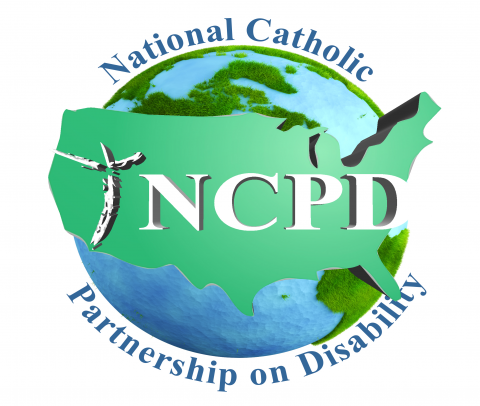
The Pastoral Statement of U.S. Catholic Bishops on People with Disabilities calls for the inclusion of persons with diverse disabilities into the full life of the Church and challenges the Church to act as an advocate for and with them within the community at large and within the Church itself.
Defense of the right to life, then, implies the defense of other rights which enable the individual with a disability to achieve the fullest measure of personal development of which he or she is capable. These include the right to equal opportunity in education, in employment, in housing, as well as the right to free access to public accommodations, facilities and services.....
It is not enough merely to affirm the rights of people with disabilities. We must actively work to make them real in the fabric of modern society.
And again..."We look forward to the day when more individuals with disabilities are active in the full-time, professional service of the Church, and we applaud recent decisions to accept qualified candidates for ordination or the religious life in spite of their significant disabilities."
To open the doors of the Church to persons with disabilities requires that we make accommodations which remove various barriers to their participation. Likewise, we must be ready to accept the accommodations which people with disabilities make to compensate for their limitations. The use of service animals represents such an accommodation.
Service animals are specifically trained to meet defined needs of persons with disabilities. Guide dogs assure safe, convenient mobility for persons who are blind. Hearing dogs alert people who are deaf to important sounds which they cannot hear. Other service dogs provide assistance to people with physical disabilities by retrieving objects for them, opening doors, and so on. Now monkeys are being trained to provide similar assistance to people with physical disabilities.
Service animals are trained under criteria that have been developed to insure that owner and animal form a team to accomplish the purposes for which the training has been provided. Owners are given definite rules to follow in keeping the animals alert to their duties and under control when in contact with other individuals or groups. Owners, therefore, have the full responsibility of seeing that their animals are appropriately behaved in contacts with people.
Following the passage of the Americans with Disabilities Act, which exempts churches from the public accommodations requirements of the law, Bishop James Malone, then
Chairman of the Domestic Policy Committee of the U.S. Catholic Conference, wrote to his fellow bishops in part:
"In passing the law, Congress took into account concerns raised by a number of religious denominations. The employment section of the law applies to religious employers, but contains limited exceptions relating to religious preferences and conformity to religious tenets......This does not mean or suggest, however, that our strong and continuing support for the full inclusion of our sisters and brothers who have disabling conditions is lessened or limited. We oppose unfair discrimination, not because it may be illegal, but because it is wrong. It diminishes both persons with disabilities and the entire Catholic community."
Clearly, therefore, the institutional Church and its members have the moral responsibility to support the ADA and its principles even when they do not legally apply to the Church. In meeting this responsibility we open our church buildings, liturgies, programs, activities, and our professional and volunteer staffs to people with disabilities and the accommodations they bring with them to maximize their independent functioning. Since service animals are a significant means of independence for those who use them, they must be an integral part of such persons' welcome into any and all phases of church life. To exclude them is to diminish or deny the ability of their owners to play the role in the Church which they are, indeed, invited to play. We cannot be inconsistent in our Christian welcome to the community of persons with disabilities.
Approved by the NCPD Board of Directors November, 1994
